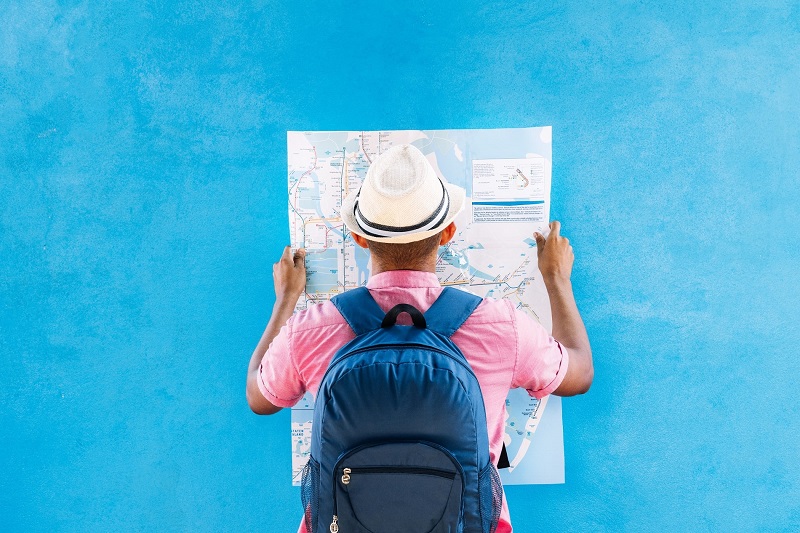I’ve always believed that age is just a number, and it shouldn’t put a damper on our love for exploration and adventure. But let’s face it, as we age, traveling requires a bit more planning and precaution. In this article, we’ll dive into some essential tips and tricks for staying safe while traveling as a senior.
Understanding the Importance of Safety for Seniors While Traveling
Safety while traveling holds great significance for seniors due to unique risks and challenges they can face. It’s vitally important for seniors to undertake cautious measures while venturing out.
Risks and Challenges Specific to Senior Travelers
Specific risks that senior travelers might encounter include health issues, fatigue, and susceptibility to crimes. For instance, health issues like chronic diseases can potentially be aggravated by travel stress. Seniors tend to tire more easily owing to their advanced age. Essential components of vacation like site-seeing or exploring a new city might prove to be more physically demanding than expected, leading to fatigue. Additionally, criminals often view senior travelers as easy targets, thereby increasing their vulnerability to theft or scams. It’s therefore of utmost importance for seniors to minimize these risks by implementing protective strategies.
Preparing for Safe Travel as a Senior
Taking the initiative, seniors can prepare successfully for safe travel. From health assessments and vaccinations to packing the right gear and getting travel insurance, we’ll cover key aspects that pave the way to a secure journey.
Health Check-ups and Vaccinations for Senior Travelers
Starting proactive, seniors must always plan for a health check-up before any trip. It’s an optimal way to gauge their health status, address ongoing issues, and any potential travel-related health hazards. Consulting with a healthcare provider enables seniors to align their travel plans with their current health condition.
Vaccinations exceptionally provide protection for senior travelers. Seniors, bound for destinations with diseases like Yellow Fever or Typhoid, can take preventive vaccinations, following the advice from their healthcare provider. Getting vaccinated not only shields seniors from these diseases but fosters an overall mind at ease travel experience.
Packing Essentials for a Safe Journey
Turning to preparations, packing smart leads to a safe journey. Seniors ought to include items such as extra medication, copies of prescriptions, phone numbers of doctors and family members. These essentials ensure immediate help, if and when required.
In staying practical, consider packing comfort and safety items too. This means a good pair of walking shoes, hand sanitizer, sunblock, and a hat for sun protection, a small first aid kit, and a whistle or personal alarm for safety.
Travel Insurance for Seniors
Investing in travel insurance, seniors minimize unforeseen costs related to health emergencies or trip cancellations. Insurance plans specifically catered for seniors offer coverage for medical emergencies, trip cancellations, and baggage loss among others.
Being cautious, seniors must read and understand the coverage and limits of these policies. It’s vital to ensure that the policy covers pre-existing conditions and emergency evacuation, as these instances pose the most financial risk during travel. Remember, reliable travel insurance brings peace of mind during any travel adventure for seniors.
Choosing Senior-Friendly Destinations and Accommodations
Transitioning from preparation to execution, a significant part of ensuring safety and smooth travel for seniors lies in the choice of destinations and accommodations.
Considerations for Picking Senior-Safe Destinations
One critical factor we need to ponder upon is the accessibility of the prospective destination. It’s easier to navigate terrains that lack steep hills or steps, ideal for seniors who may face mobility challenges. Adequate tourist facilities, such as public restrooms and seating areas, also enhance senior-comfort.
Healthcare resources at the destination play a vital role. Seniors, in particular, require places that have nearby hospitals or clinics. It’s also beneficial if these destinations offer something intriguing, something the senior traveler enjoys. For example, bird-watching spots for a bird enthusiast.
Lastly, it’s helpful if the destinations have a senior-friendly environment, which includes polite and helpful locals, quiet surroundings, and safety measures in place.
Characteristics of Senior-Friendly Accommodations
When it comes to accommodations, few factors might differentiate a standard hotel from a senior-friendly establishment. Easy accessibility, for instance, is vital for seniors. An ideal hotel would have elevators or rooms on the ground floor, minimizing the use of stairs.
Ambulance tie-ups and in-house doctor arrangements underscore the hotel’s awareness towards the health needs of their senior guests.
An establishment offering nutritious meal options is a good choice. For seniors, healthy food is not an option but a necessity.
Lastly, a comfortable and peaceful environment is something a senior traveler might prioritize over anything else. Noise-free rooms, gentle staff, clean surroundings, and comfortable beds – are all part of a senior-traveler’s checklist for a pleasant stay.
Safe Travel Practices for Seniors
Cultivating a safe and healthy travel experience requires concrete practices. This section explores how seniors can remain physically healthy during their trip and avoid common travel scams.
Staying Fit and Healthy Throughout the Trip
Traveling is invigorating, but let’s not discount the importance of maintaining fitness. Regular exercise, like light stretching or walks, could boost physical function. Seniors could join a hotel gym or participate in gentle activities (yoga, tai chi, or swimming).
Balanced nutrition is a must, incorporating wholesome food such as fruits, lean meat, and vegetables. Avoid excessive sugar or processed food. Hydration plays a crucial role too. Drink plenty of water to avoid dehydration due to weather changes.
Regardless of fitness, seniors should recognize their bodies’ limitations, refusing the temptation to partake in strenuous activities.
When it comes to medications, remember to adhere to the prescribed schedule. Store them in a reachable location.
Travel Scams Targeting Seniors and How to Avoid Them
Unfortunately, seniors often become targets of travel scams. There are ways, however, to deflect these predicaments.
Be wary of strangers offering thinly-veiled assistance, as scam artists often masquerade as kind helpers. Avoid divulging personal details to random individuals or over phone calls.
When securing transportation, opt for licensed and registered taxi or ride-hailing services. Unregistered vehicles invite potential scams.
Exercise caution when accessing public Wi-Fi. Scammers often set up fake networks to snatch personal data. It’s preferable to use mobile data when making sensitive transactions.
With awareness and proper practices in place, staying safe while traveling as a senior becomes a more achievable reality.
Leveraging Technology for Safety During Travel
In the age of digitization, technology plays a pivotal role in ensuring safety during travels. Let’s delve into how technology can bolster security for senior travelers.
Useful Safety Apps for Senior Travelers
Safety applications surge as powerful allies during travel, aiding in numerous ways ranging from navigation to health monitoring. For instance, “Medisafe” is a must-have app for seniors, assisting in managing medication schedules. It sends reminders and tracking medication intake, reducing the chance of missed doses.
Another useful app, “SirenGPS”, offers an efficient way to connect with emergency services. Seniors can alert the police, fire department, or medical services with the tap of a button, a real boon during a crisis.
Navigation apps like “Google Maps” simplify mobility, providing step-by-step directions even in unfamiliar destinations. For seniors with dietary restrictions, apps such as “HealthyOut” locate nearby restaurants serving diet-specific meals. Knowledge of these apps, coupled with a smartphone or tablet, contributes significantly to a safer and more convenient travel experience for seniors.
Staying Connected: Reliable Communication Tools for Seniors
Being connected with family and healthcare providers is a crucial aspect of safe travel for seniors. Fortunately, technology provides effective solutions to address this need.
“Spendgo” is a robust communication tool that allows seniors to make video calls, send messages, and share pictures with their families. Its intuitive interface makes it ideal for seniors, even those without much technological expertise.
For health-related communication, “MyChart” is an excellent tool. It provides direct access to personal health records, enabling seniors to share updates with healthcare providers in real time. Additionally, it facilitates communication with doctors, scheduling appointments, and viewing test results.
I also recommend “Skype” – it’s been a steadfast communication tool for years and is compatible with multiple devices. Whether using a smartphone, laptop, or tablet, Skype keeps seniors connected with their loved ones through easy-to-make calls and messages.
The right choice of apps and communication tools can make a significant difference, ensuring safer and more enjoyable travels.
Conclusion
So there you have it. Staying safe while traveling as a senior isn’t as daunting as it might seem. It’s all about smart preparation, from health check-ups to packing the right essentials. Choosing the right places to visit and stay plays a big part too.
Don’t forget the importance of maintaining your health while on the move and being aware of potential scams. And let’s not underestimate the role of technology. Apps like Medisafe and SirenGPS, as well as communication tools like Spendgo and MyChart, can be your best friends on the road.
Traveling at any age should be about making memories, not worrying about safety. With the right steps, you can ensure your golden years are filled with adventure, not anxiety. Happy travels!










0 Comments